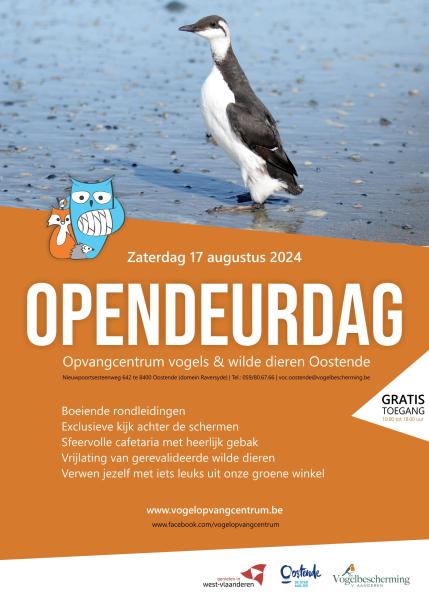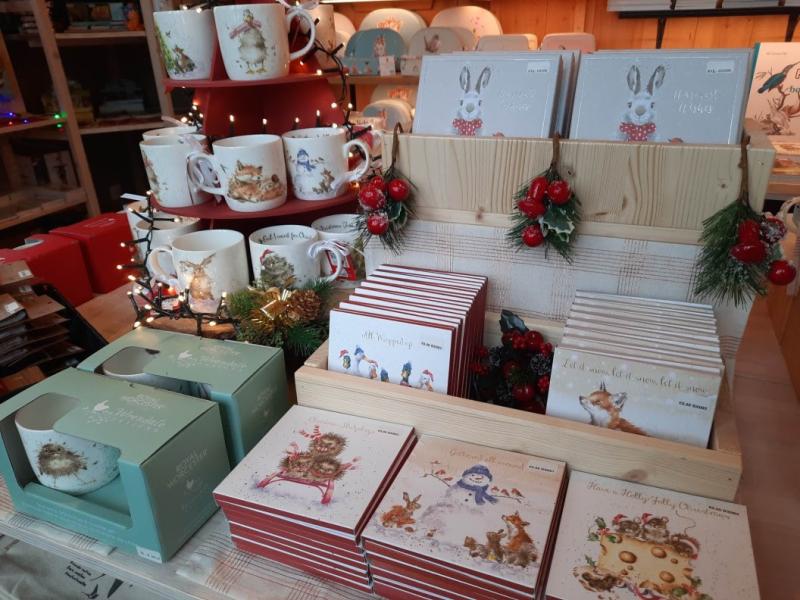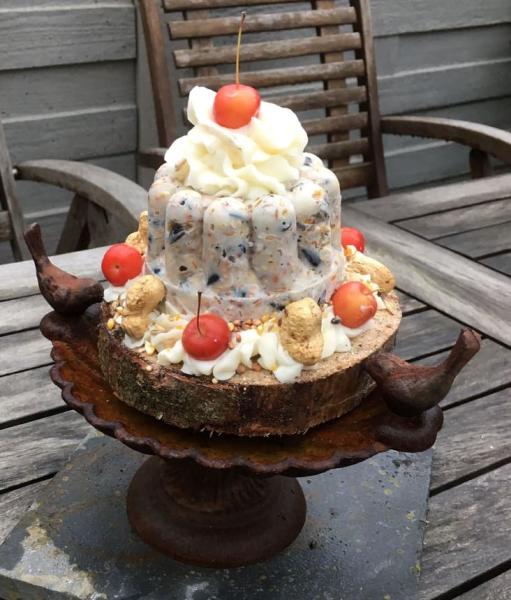Opendeurdag zaterdag 23 augustus
Opendeurdag – Zaterdag 23 augustus
Kom op zaterdag 23 augustus vanaf 10.00 uur genieten van onze jaarlijkse opendeurdag!
Krijg een unieke blik achter de schermen tijdens onze gegidste rondleidingen, proef iets lekkers in de gezellige cafetaria…
GEZOCHT: VRIJWILLIGERS
De drukste periode van het jaar komt eraan en dan kunnen we heel wat helpende handen gebruiken. We zijn op zoek naar vrijwilligers voor het onthaal, telefoonpermanentie, transport en dierenverzorging. Heb je zin om ons team van mei-september te komen versterken? Neem dan zeker contact met ons op of spring gerust eens binnen voor extra info.
Werkingsverslag 2024
Interesse in het reilen en zeilen van ons Opvangcentrum? Blader dan eens door ons (digitaal) werkingsverslag van 2024:
werkingsverslag_2024.pdf downloaden
Werkingsverslag 2022
Interesse in het reilen en zeilen van ons Opvangcentrum? Blader dan eens door ons (digitaal) werkingsverslag van 2022.
Je kunt het hier downloaden.
Zeldzame Vale gier met vermoedelijke schotwonden gevonden in Nieuwpoort
Gisteren, 9 maart, werd een Vale gier binnengebracht in ons Opvangcentrum.
Lees hier meer!
EUROWA launched and waiting to land!
EUROWA (EURopean Oiled Wildlife Assistance) is a network of European oiled wildlife response experts who are working together to improve professionalism in marine wildlife emergency response. We have been building our network of wildlife professionals for many years and with the help of EU Civil Protection funding through the EUROWA-1 and…
KERSTSHOPPING, RONDLEIDINGEN EN WORKSHOPS
Kom shoppen in kerstsfeer! De allertofste en origineelste ideeën voor kerstcadeaus.
- Mokken, sjaals, puzzels en veel meer van Wrendale Designs
- Vogelvoer à volonté. Ook voedersystemen in alle vormen en maten
- Nestkast kopen in de winter? Natuurlijk! Zo kunnen de vogels droog en warm slapen!
- En nog veel meer...!
Verrekijker of…
NACHT VAN DE DUISTERNIS 09/10
Voor alle informatie over de Nacht van de Duisternis in Oostende op 9 oktober 2021 kun je terecht op deze site.
GEEN OPENDEURDAG
BEZOEKERSRUIMTE OPEN
Komen jullie een kijkje nemen naar onze heropende bezoekersruimte? Samen met een team gemotiveerde vrijwilligers gingen we tijdens de sluiting aan de slag. Maar liefst 7 (!) schermen tonen jullie prachtig beeldmateriaal van in ons Opvangcentrum. Je kunt gezellig op een bank wegkruipen bij ons vossenhol, bijleren over olierampen, een blik werpen in de behandelruimtes, vanop het terras onze…
Wandelen t.v.v. ons opvangcentrum
Eén van onze vrijwilligers, Chantal de Boeck, gidst al enkele jaren bij ons Opvangcentrum. Als gevolg van corona werden alle rondleidingen achter de schermen afgelast.
Om ons te steunen startte Chantal met een nieuw initiatief. De komende maanden staan er verschillende wandelingen op het programma waarin zij je meeneemt in de (toch wel) wondere wereld van de Zilvermeeuw. Voor meer…


